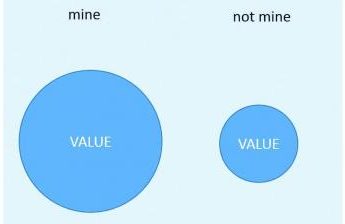What is a very common issue that business valuators come across? It’s that most people overvalue the things they already own. In valuing companies for buy/sell or acquisition purposes, it is extremely likely that the owner (seller) will place a higher value on the business than the buyer. This is called the endowment effect by psychologists and behavioral economists. This is so common in the M&A world that intermediaries just expect this to occur. It’s an automatic. Why is this? Behavioral economists have researched and written about the many ways human behavior deviates from standard economic theory. Standard economic theory…
Author: Gregory Pearl
Business Valuations Are Good for Your Business
There are over 10 million small businesses in the United States. At any given time at least 10% of these businesses are facing a business transition issue. Most of those businesses facing a transition issue need valuations for tax reasons or for optimum financial planning. Or for an ownership change due to retirement or related issues. The number of businesses facing the transfer of ownership issues will continue to rise over the coming years as more baby boomers hit the age at which they would rather be on the golf course than in the office. Baby boomers’ children and new…
Why it can be so hard to sell a business
It’s all about supply and demand. Here are some facts. About 4.2 million companies or 70% of all businesses that employ more than one person are owned by someone who is aged 53 or older. Around 8,000 people turn 65 every day and this isn’t changing for a while. Until the baby boom cohort is done. Most business owners have delayed selling their business because of the terrible economic recession starting in 2008. They were and are waiting for better market conditions. Here are some more facts. Private Equity Groups (PEGs) own 7,700 to 8,000 companies. By definition, a PEG…
Our Attitudes Towards Debt Have Changed
Warren Buffet recently quoted his partner Charlie Munger: “There are three ways to go broke: “liquor, ladies and leverage”. For me, I know almost nothing of liquor and will not comment on the ladies. The rest of this article talks about leverage and our relationship with debt as a society. The public acceptance of the use of debt has evolved over time. I am reminded of my Great-Grandmother Marie who was an immigrant from Emden, Germany to Chicago in the 19th century. Her family lived in what is now the posh Chicago neighborhood of Lincoln Park. Back then it was…
When Should You Use Debt In Your Business?
After discussing the good and points of debt generally, here are some specific points about when to use debt financing and how to assess the risk. If you have financial skills, create a cash flow model on a spreadsheet and calculate the impact of the additional expense of making the loan payments. This will force you to look closely at your expenses and revenues. And estimate the likelihood of being able to pay off the loan. If you don’t know how to calculate this yourself, then bring in a financial advisor. Not all CPAs know how to do this accurately…
Debt is Both Good and Bad
I’ve been thinking about debt and leverage after reading the Warren Buffet (Berkshire Hathaway) shareholder letter. For individuals debt can be dangerous. It is easy for consumers to rack up debt in part due to the ceaseless marketing of credit solicitations. This includes everything from credit cards to unnecessary and ill-advised student loan debt. Some consumer debt may be unavoidable but much of it is discretionary. Self-discipline is advisable. The consumer should never allow debt levels to become so high that it closes off options and opportunities such as changing jobs, getting married, and so on. On the other hand,…
Seven More Factors That Will Change the Value of Your Business
My last article listed seven factors that can and will affect the value of your business. That list was not comprehensive. There are more. Here are seven more factors you, the owner of a privately held business, should consider. The additional seven-factors are: 1) Narrow Customer Base (Concentration) lowers value. Most successful companies try to reduce dependence on a few large customers. Should any one customer be lost, the effect on business earnings is then minimal. The more loyal and diverse the customers that a company has the higher its value. It is even better to have long-established contracts with…






